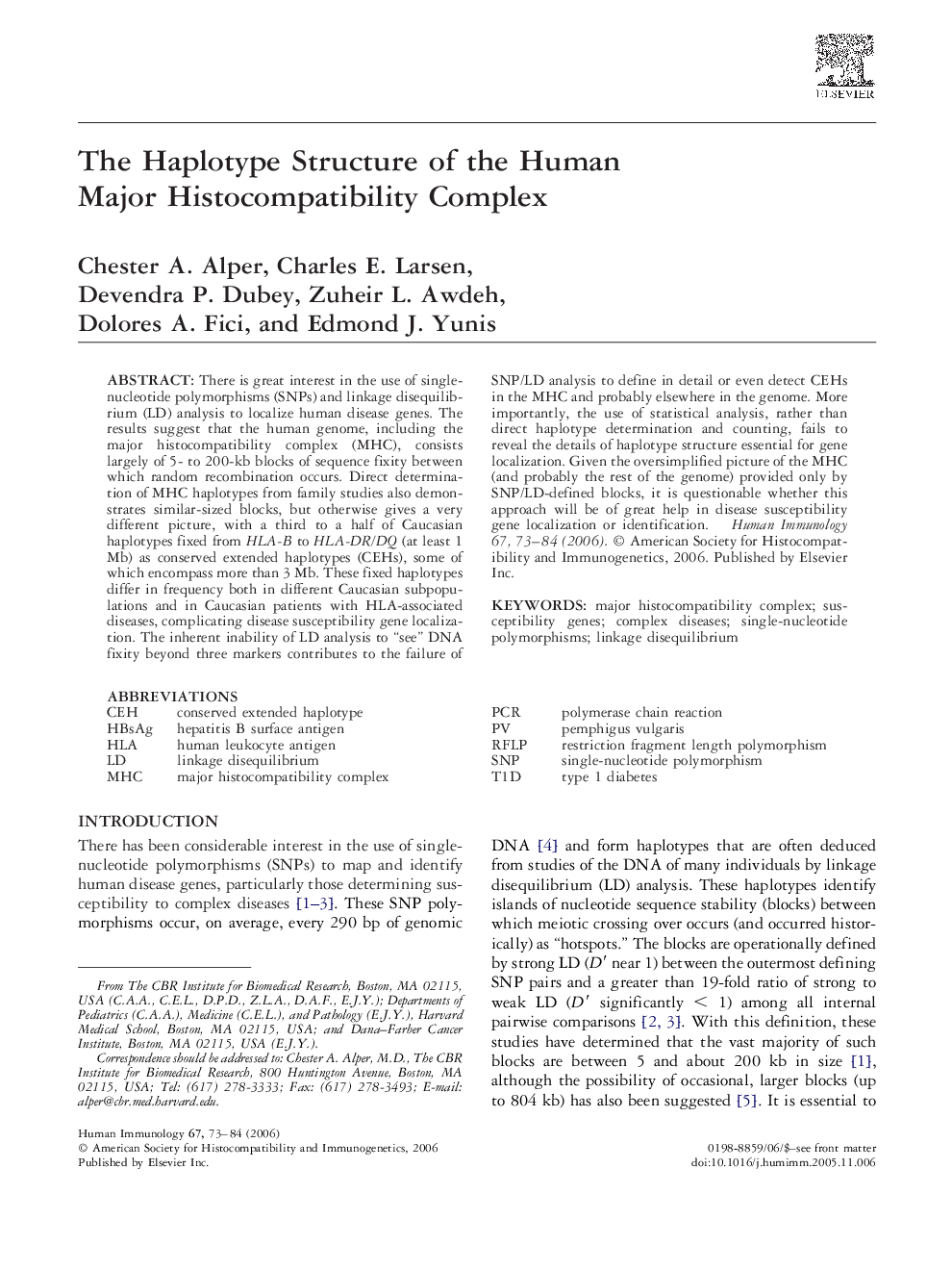| کد مقاله | کد نشریه | سال انتشار | مقاله انگلیسی | نسخه تمام متن |
|---|---|---|---|---|
| 3352565 | 1591381 | 2006 | 12 صفحه PDF | دانلود رایگان |

There is great interest in the use of single-nucleotide polymorphisms (SNPs) and linkage disequilibrium (LD) analysis to localize human disease genes. The results suggest that the human genome, including the major histocompatibility complex (MHC), consists largely of 5- to 200-kb blocks of sequence fixity between which random recombination occurs. Direct determination of MHC haplotypes from family studies also demonstrates similar-sized blocks, but otherwise gives a very different picture, with a third to a half of Caucasian haplotypes fixed from HLA-B to HLA-DR/DQ (at least 1 Mb) as conserved extended haplotypes (CEHs), some of which encompass more than 3 Mb. These fixed haplotypes differ in frequency both in different Caucasian subpopulations and in Caucasian patients with HLA-associated diseases, complicating disease susceptibility gene localization. The inherent inability of LD analysis to “see” DNA fixity beyond three markers contributes to the failure of SNP/LD analysis to define in detail or even detect CEHs in the MHC and probably elsewhere in the genome. More importantly, the use of statistical analysis, rather than direct haplotype determination and counting, fails to reveal the details of haplotype structure essential for gene localization. Given the oversimplified picture of the MHC (and probably the rest of the genome) provided only by SNP/LD-defined blocks, it is questionable whether this approach will be of great help in disease susceptibility gene localization or identification.
Journal: Human Immunology - Volume 67, Issues 1–2, January–February 2006, Pages 73–84